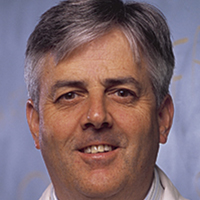

 Zoltan (Zolt) Arany, MD, PhD is Professor of Medicine and Director of the Cardiovascular Metabolism Program at the Perelman School of Medicine at the University of Pennsylvania. Dr. Arany graduated Summa Cum Laude from Harvard College. He received his Medical Degree from Harvard Medical School and his doctoral degree from the Harvard Graduate School of Arts and Sciences. After his doctoral studies, Dr. Arany completed internal medicine residency training at the Massachusetts General Hospital, followed by fellowship training in Cardiology at the Brigham and Women’s Hospital, and post-doctoral research fellowship at the Dana Farber Cancer Institute, in Boston. He joined the University of Pennsylvania as Associate Professor of Medicine in 2014.
Zoltan (Zolt) Arany, MD, PhD is Professor of Medicine and Director of the Cardiovascular Metabolism Program at the Perelman School of Medicine at the University of Pennsylvania. Dr. Arany graduated Summa Cum Laude from Harvard College. He received his Medical Degree from Harvard Medical School and his doctoral degree from the Harvard Graduate School of Arts and Sciences. After his doctoral studies, Dr. Arany completed internal medicine residency training at the Massachusetts General Hospital, followed by fellowship training in Cardiology at the Brigham and Women’s Hospital, and post-doctoral research fellowship at the Dana Farber Cancer Institute, in Boston. He joined the University of Pennsylvania as Associate Professor of Medicine in 2014.
Dr. Arany’s laboratory focuses on the mechanisms that underlie metabolic pathophysiology in the cardiovascular system. He focuses on linking investigations of cardiac and vascular physiology in model organisms to clinical data and observations, and taking a multidisciplinary approach, spanning from molecular biology and numerous ‘omic approaches to model organisms and human clinical studies. Recent focus in Dr. Arany’s laboratory has included the role of the vasculature in the development of diabetes, and of maternal cardiac disease during and after pregnancy. Dr. Arany is also an active clinical cardiologist, teacher, and mentor.
Dr. Arany is a recipient of several awards including the American Heart Association Established Investigator Award in 2012, the Hal Dvorak Young Investigator Award in Translational Research, and the prestigious Inaugural Yale Calabresi Prize in 2014, given to Dr. Arany in recognition for his work on cardiovascular metabolism. He is elected to the American Society of Clinical Investigators. Dr. Arany has published more than 100 research papers in prominent journals such as New England Journal of Medicine, Nature, Cell, PNAS, Cell Metabolism, and Genes & Development. Dr. Arany is regularly invited to speak nationally and internationally on his basic and translational research in cardiovascular metabolism. He has also received a number of teaching and mentoring awards.
 Christophe Beauloye is an acute and interventionnal cardiologist and is at the head of Division of Cardiology at the Cliniques universitaires Saint Luc in Brussels, Belgium. He is Professor of Medecine at UCLouvain Medical School and a senior investigator in the Pole of Cardiovascular Research in “Institut de Recherche Expérimentale et Clinique” (IREC), in Brussels. He received his PhD in The de Duve Institute under the supervision of Professor Louis Hue, in 2002. His research interests focus on the role of metabolic signaling and dysregulation in cardiac diseases pathophysiology, including post-MI remodeling, diabetic and septic cardiomyopathy. He recently demonstrated that SMIT1, a SGLT type of transport, mediates hyperglycemia-induced cellular damages in the heart. Moreover, in close collaboration with Professor Sandrine Horman and based on his clinical interest, his laboratory has developed an expertise in studying platelets biology and thrombosis, with a particular interest in connecting platelets metabolism and function, in clinical context of arterial thrombosis.
Christophe Beauloye is an acute and interventionnal cardiologist and is at the head of Division of Cardiology at the Cliniques universitaires Saint Luc in Brussels, Belgium. He is Professor of Medecine at UCLouvain Medical School and a senior investigator in the Pole of Cardiovascular Research in “Institut de Recherche Expérimentale et Clinique” (IREC), in Brussels. He received his PhD in The de Duve Institute under the supervision of Professor Louis Hue, in 2002. His research interests focus on the role of metabolic signaling and dysregulation in cardiac diseases pathophysiology, including post-MI remodeling, diabetic and septic cardiomyopathy. He recently demonstrated that SMIT1, a SGLT type of transport, mediates hyperglycemia-induced cellular damages in the heart. Moreover, in close collaboration with Professor Sandrine Horman and based on his clinical interest, his laboratory has developed an expertise in studying platelets biology and thrombosis, with a particular interest in connecting platelets metabolism and function, in clinical context of arterial thrombosis.
 Dr Brookes was born in the UK and trained in biochemistry at UCL (BSc) and Cambridge (PhD). Following post-doctoral work on mitochondria and nitric oxide at the University of Alabama at Birmingham, in 2003 he moved to the University of Rochester NY as an assistant professor, where he is currently a tenured professor of Anesthesiology and of Pharmacology/Physiology. Dr. Brookes' main research interests are mitochondria and metabolism in the context of cardiac ischemia-reperfusion injury, with specific sub-topics including sirtuins, mitochondrial ion channels, development of mitochondria-targeted drugs, and mito-nuclear signaling.
Dr Brookes was born in the UK and trained in biochemistry at UCL (BSc) and Cambridge (PhD). Following post-doctoral work on mitochondria and nitric oxide at the University of Alabama at Birmingham, in 2003 he moved to the University of Rochester NY as an assistant professor, where he is currently a tenured professor of Anesthesiology and of Pharmacology/Physiology. Dr. Brookes' main research interests are mitochondria and metabolism in the context of cardiac ischemia-reperfusion injury, with specific sub-topics including sirtuins, mitochondrial ion channels, development of mitochondria-targeted drugs, and mito-nuclear signaling.
 Brief Biography: Born in Statesville, North Carolina, United States of America (1976). Graduated from the University of North Carolina at Greensboro (2000), and finalized Ph.D. course work in 2004 at the same university. Postdoctoral training was in animal models of atherosclerosis and lipoprotein metabolism at Wake Forest University (USA) under the leadership of Dr. Lawrence L. Rudel (2004-2009). Assistant Professor at Wake Forest University (2009-2011). Associate Staff at the Cleveland Clinic (2013-present). Major Fields of Studies: Dr. Brown’s research program is focused on the interrelationship between nutrient metabolism and the development of chronic metabolic diseases such as obesity, type II diabetes, and cardiovascular disease. Work in Dr. Brown’s Laboratory are focused in the following research areas:
Brief Biography: Born in Statesville, North Carolina, United States of America (1976). Graduated from the University of North Carolina at Greensboro (2000), and finalized Ph.D. course work in 2004 at the same university. Postdoctoral training was in animal models of atherosclerosis and lipoprotein metabolism at Wake Forest University (USA) under the leadership of Dr. Lawrence L. Rudel (2004-2009). Assistant Professor at Wake Forest University (2009-2011). Associate Staff at the Cleveland Clinic (2013-present). Major Fields of Studies: Dr. Brown’s research program is focused on the interrelationship between nutrient metabolism and the development of chronic metabolic diseases such as obesity, type II diabetes, and cardiovascular disease. Work in Dr. Brown’s Laboratory are focused in the following research areas:
Project 1) Metaorganismal Endocrinology: Gut Microbe-Derived Hormones in Driving Cardiometabolic Disease.
Project 2) Mechanism Regulating Trans-Intestinal Cholesterol Excretion (TICE).
Project 3) Alpha Beta Hydrolase Domain (ABHD) Proteins in Metabolic Disease.
 John Chatham received his D.Phil. in 1987 from the Department of Biochemistry at the University of Oxford in the UK. He completed his post-doctoral training at Johns Hopkins School of Medicine in 1989, where he subsequently became an Assistant Professor in 1991. He joined the faculty at the University of Alabama at Birmingham (UAB) in 2000 and is currently Professor of Pathology in the Division of Molecular and Cellular Pathology at UAB. His work has focused on the role of the glucose-dependent, post-translational modifications of proteins by O-linked beta-N-acetylglucosamine moiety (O-GlcNAc) in mediating cardiomyocyte stress responses. Work from his laboratory has demonstrated that acute increases of O-GlcNAc levels are cardioprotective; conversely, in the setting of diabetes where O-GlcNAc levels are chronically elevated cardiomyocytes cell signaling pathways are impaired in an O-GlcNAc dependent manner. Additional research interests include the role of store-operated calcium entry (SOCE) in cardiomyocytes and how this is regulated by O-GlcNAc as well as cross-talk between O-GlcNAc and autophagic signaling in the heart. He is also actively involved in collaborations exploring how O-GlcNAcylation regulates learning and memory in addition to its role in neurodegenerative diseases.
John Chatham received his D.Phil. in 1987 from the Department of Biochemistry at the University of Oxford in the UK. He completed his post-doctoral training at Johns Hopkins School of Medicine in 1989, where he subsequently became an Assistant Professor in 1991. He joined the faculty at the University of Alabama at Birmingham (UAB) in 2000 and is currently Professor of Pathology in the Division of Molecular and Cellular Pathology at UAB. His work has focused on the role of the glucose-dependent, post-translational modifications of proteins by O-linked beta-N-acetylglucosamine moiety (O-GlcNAc) in mediating cardiomyocyte stress responses. Work from his laboratory has demonstrated that acute increases of O-GlcNAc levels are cardioprotective; conversely, in the setting of diabetes where O-GlcNAc levels are chronically elevated cardiomyocytes cell signaling pathways are impaired in an O-GlcNAc dependent manner. Additional research interests include the role of store-operated calcium entry (SOCE) in cardiomyocytes and how this is regulated by O-GlcNAc as well as cross-talk between O-GlcNAc and autophagic signaling in the heart. He is also actively involved in collaborations exploring how O-GlcNAcylation regulates learning and memory in addition to its role in neurodegenerative diseases.
 Blandine Comte is a research director at the French National Institute for Agronomy Research (INRA, Clermont-Ferrand, France). After a PhD in biochemistry and nutrition (Lyon-I University, France), she worked in the Departments of Nutrition of the University of Montreal (Canada) and of Case Western Reserve University (USA) as post-doctoral fellow and assistant professor. In 2007, she joined the INRA Human Nutrition Unit. Her research interests are focused on understanding the mechanisms by which nutrition contributes to the development or the prevention of non-communicable chronic diseases. She is heading the MAPPING research group which research goals are (1) the identification of early and/or predictive (bio)markers of chronic metabolic diseases development and effects of nutrition using integrative approaches, (2) a better understanding of the mechanisms by which nutrition contributes to the development or the prevention of chronic diseases such as type 2 diabetes and associated risk of cardiovascular diseases using nutrigenomics approaches, (3) the development of new tools of the high throughput approaches for research on metabolism and nutrition to identify biomarkers of exposure and effects. She has been principal investigator/collaborator of national and international projects.
Blandine Comte is a research director at the French National Institute for Agronomy Research (INRA, Clermont-Ferrand, France). After a PhD in biochemistry and nutrition (Lyon-I University, France), she worked in the Departments of Nutrition of the University of Montreal (Canada) and of Case Western Reserve University (USA) as post-doctoral fellow and assistant professor. In 2007, she joined the INRA Human Nutrition Unit. Her research interests are focused on understanding the mechanisms by which nutrition contributes to the development or the prevention of non-communicable chronic diseases. She is heading the MAPPING research group which research goals are (1) the identification of early and/or predictive (bio)markers of chronic metabolic diseases development and effects of nutrition using integrative approaches, (2) a better understanding of the mechanisms by which nutrition contributes to the development or the prevention of chronic diseases such as type 2 diabetes and associated risk of cardiovascular diseases using nutrigenomics approaches, (3) the development of new tools of the high throughput approaches for research on metabolism and nutrition to identify biomarkers of exposure and effects. She has been principal investigator/collaborator of national and international projects.
 Jules Griffin received his doctorate (a DPhil) from the Department of Biochemistry, University of Oxford, where he studied metabolism using stable isotope approaches in the Radda group. He then took up a Harvard Medical School/Massachusetts General Hospital Fellowship in Radiology using magnetic resonance spectroscopy to follow cardiac metabolism with Doug Lewandowski. In 1999 he returned to the UK to take up a research associate position at Imperial College London, supervised by Prof. Jeremy Nicholson to develop NMR based approaches for the new field of Metabonomics. He was awarded a Royal Society University Fellowship which in 2003 he transferred to the University of Cambridge to start his own research group. His programme of research focuses on the development of metabolomics and lipidomics tools to investigate aspects of the Metabolic Syndrome. In particular his group has an interest in identifying biomarkers that stratify patients according to risk factor of the Metabolic Syndrome and understand the associated underlying mechanisms. In 2016 he was made Professor of Metabolism and Nutrition at the University of Cambridge. He is also President of the Metabolomics Society and director of the Metabolic Profiling Forum.
Jules Griffin received his doctorate (a DPhil) from the Department of Biochemistry, University of Oxford, where he studied metabolism using stable isotope approaches in the Radda group. He then took up a Harvard Medical School/Massachusetts General Hospital Fellowship in Radiology using magnetic resonance spectroscopy to follow cardiac metabolism with Doug Lewandowski. In 1999 he returned to the UK to take up a research associate position at Imperial College London, supervised by Prof. Jeremy Nicholson to develop NMR based approaches for the new field of Metabonomics. He was awarded a Royal Society University Fellowship which in 2003 he transferred to the University of Cambridge to start his own research group. His programme of research focuses on the development of metabolomics and lipidomics tools to investigate aspects of the Metabolic Syndrome. In particular his group has an interest in identifying biomarkers that stratify patients according to risk factor of the Metabolic Syndrome and understand the associated underlying mechanisms. In 2016 he was made Professor of Metabolism and Nutrition at the University of Cambridge. He is also President of the Metabolomics Society and director of the Metabolic Profiling Forum.
 Dr Han received his MD from College of Medicine, Inje University in Busan and his PhD in Physiology from Seoul National University in Seoul. His PhD focused on myocardial ischemia-reperfusion injury. The focus of Dr. Han's research is energy metabolism in cardiovascular diseases and cancer with physical activity. He is Professor of Physiology at College of Medicine, Inje University where he is Director of Cardiovascular Metabolic Disease Center and of the National Research Laboratory for Mitochondrial Signaling.
Dr Han received his MD from College of Medicine, Inje University in Busan and his PhD in Physiology from Seoul National University in Seoul. His PhD focused on myocardial ischemia-reperfusion injury. The focus of Dr. Han's research is energy metabolism in cardiovascular diseases and cancer with physical activity. He is Professor of Physiology at College of Medicine, Inje University where he is Director of Cardiovascular Metabolic Disease Center and of the National Research Laboratory for Mitochondrial Signaling.
 Professor Mary-Ellen Harper received an undergraduate degree in Nutrition from the University of Guelph prior to completing her PhD in Biochemistry, supervised by Dr. Jean Himms-Hagen, at the University of Ottawa. Dr Harper then trained as a Postdoctoral Fellow in Dr. Martin Brand’s laboratory in the Department of Biochemistry at the University of Cambridge (UK). In 1995 Dr. Harper established her Mitochondrial Bioenergetics research laboratory at the University of Ottawa.
Professor Mary-Ellen Harper received an undergraduate degree in Nutrition from the University of Guelph prior to completing her PhD in Biochemistry, supervised by Dr. Jean Himms-Hagen, at the University of Ottawa. Dr Harper then trained as a Postdoctoral Fellow in Dr. Martin Brand’s laboratory in the Department of Biochemistry at the University of Cambridge (UK). In 1995 Dr. Harper established her Mitochondrial Bioenergetics research laboratory at the University of Ottawa.
Dr Harper’s research focuses on mechanisms that impact the efficiency of energy conversion pathways in mitochondria. Changes in the efficiency of energy conversion can affect the development of diseases and metabolic dysfunction, and her research probes mechanisms in the context of obesity, diabetes, heart failure and cancer. Experimental approaches span from molecular in vitro studies, to mouse models, and to integrative studies in patient populations. Her current laboratory team includes three postdoctoral fellows, three PhD students, several undergraduate research students, and a technician. Research has been funded by Canadian Institutes of Health Research (CIHR), Natural Sciences and Engineering Research Council (NSERC), Heart and Stroke Foundation, National Institutes of Health (NIH), Canadian Cancer Society Research Institute, and the Canadian Foundation for Innovation (CFI). In 2015, she was the recipient of a CIHR Foundations Award to support research on ‘Mitochondrial Bioenergetics and Redox Biology in Obesity and Related Disease’. In 2018 she received the Departmental Researcher of the Year award. She currently holds a University Research Chair in Mitochondrial Bioenergetics.
 Dr Gary D. Lopaschuk is a Distinguished University Professor of Pediatrics at the University of Alberta, Edmonton. His research focuses on the regulation of fatty acid oxidation in the heart, and the mechanism by which high rates of fatty acid oxidation contribute to heart disease and heart failure. He is also examining how alterations in fatty acid metabolism contribute to cardiovascular disease in the diabetic. At a molecular level he has characterized a number of key enzymes important in the regulation of cardiac fatty acid oxidation. He is also developing a number of therapeutic strategies that involve optimizing energy metabolism in the heart that can be used to prevent the development of heart disease, and that can also be used to treat heart failure. His research has resulted in the publication of over 400 original research articles, and he has been recognized by awards such as the Canadian Cardiovascular Research Achievement Award, the International Academy of Cardiovascular Sciences Research Achievement Award, and a Fellowship of the Royal Society of Canada. He serves on a number of journal editorial boards, including Circulation Research, Journal of Clinical Investigation, American Journal of Physiology, Cardiovascular Research, Journal of Molecular and Cellular Cardiology, Canadian Journal of Physiology and Pharmacology, Heart and Metabolism, and Cardiovascular Drugs and Therapy.
Dr Gary D. Lopaschuk is a Distinguished University Professor of Pediatrics at the University of Alberta, Edmonton. His research focuses on the regulation of fatty acid oxidation in the heart, and the mechanism by which high rates of fatty acid oxidation contribute to heart disease and heart failure. He is also examining how alterations in fatty acid metabolism contribute to cardiovascular disease in the diabetic. At a molecular level he has characterized a number of key enzymes important in the regulation of cardiac fatty acid oxidation. He is also developing a number of therapeutic strategies that involve optimizing energy metabolism in the heart that can be used to prevent the development of heart disease, and that can also be used to treat heart failure. His research has resulted in the publication of over 400 original research articles, and he has been recognized by awards such as the Canadian Cardiovascular Research Achievement Award, the International Academy of Cardiovascular Sciences Research Achievement Award, and a Fellowship of the Royal Society of Canada. He serves on a number of journal editorial boards, including Circulation Research, Journal of Clinical Investigation, American Journal of Physiology, Cardiovascular Research, Journal of Molecular and Cellular Cardiology, Canadian Journal of Physiology and Pharmacology, Heart and Metabolism, and Cardiovascular Drugs and Therapy.
 Dr Menick is the Director of the Gazes cardiac Research Institute and a Professor of Medicine in Cardiology at the Medical University of South Carolina. His laboratory is focused on epigenetic regulation in heart failure. His work has shown that treatment with HDAC inhibitors preserves ventricular remodeling and cardiac function in pre-clinical models of cardiac hypertrophy, myocardial infarction (MI), ischemia reperfusion (IR) and heart failure. He has determined that HDAC inhibitors promote the polarization of inflammatory M1 macrophages to anti-inflammatory M2 macrophages, resulting in reduced deleterious remodeling and preserve cardiac function in the post MI heart. His study is the first account of the benefit of HDAC inhibition being due in part to its ability to polarize macrophages, a cellular component under-appreciated until recently in cardiac pathologies. His work has also identified a mechanism that has served as a paradigm of how HDACs can mediate both repression and activation of gene expression. He has shown that the acetylation state of specific transcription factors affects their interaction with co-activators and co-repressors. Therefore, HDACs can facilitate gene activation via the direct deacetylation of transcription factors allowing for recruitment of co-activators to the promoter. The overall goal of the Menick lab is to translate our basic and pre-clinical discoveries into important new therapies for patients with heart disease.
Dr Menick is the Director of the Gazes cardiac Research Institute and a Professor of Medicine in Cardiology at the Medical University of South Carolina. His laboratory is focused on epigenetic regulation in heart failure. His work has shown that treatment with HDAC inhibitors preserves ventricular remodeling and cardiac function in pre-clinical models of cardiac hypertrophy, myocardial infarction (MI), ischemia reperfusion (IR) and heart failure. He has determined that HDAC inhibitors promote the polarization of inflammatory M1 macrophages to anti-inflammatory M2 macrophages, resulting in reduced deleterious remodeling and preserve cardiac function in the post MI heart. His study is the first account of the benefit of HDAC inhibition being due in part to its ability to polarize macrophages, a cellular component under-appreciated until recently in cardiac pathologies. His work has also identified a mechanism that has served as a paradigm of how HDACs can mediate both repression and activation of gene expression. He has shown that the acetylation state of specific transcription factors affects their interaction with co-activators and co-repressors. Therefore, HDACs can facilitate gene activation via the direct deacetylation of transcription factors allowing for recruitment of co-activators to the promoter. The overall goal of the Menick lab is to translate our basic and pre-clinical discoveries into important new therapies for patients with heart disease.
 Dr Elizabeth Murphy is a Head of the Cardiac Physiology Section in the Cardiovascular Branch at the National Heart, Lung and Blood Institute, Bethesda, MD USA. She received her PhD from the University of Pennsylvania in Biochemistry, followed by postdoctoral studies in Physiology at Duke University. Her research is focused on ionic, redox and energetic alterations in cell death and cardioprotection. She has also focused on mechanisms regulating sex differences in cardiovascular disease. Her recent work has centered on examining the role of the mitochondrial calcium uniporter and its role in regulating mitochondrial calcium and cell death. Dr. Murphy received the Richard Bing Young Investigator Award from the International Society of Heart Research (ISHR) in 1983, and she presented the 2009 Keith Reimer Distinguished lecture in Sapporo Japan. She is an Associated Editor for the Journal of Molecular and Cellular Cardiology, Consulting Editor for Circulation Research and Editor of Current Opinions in Physiology. She is a Fellow of the ISHR and the American Heart Association (AHA). She has served on several NIH peer review study sections and was chair of the NIH- Myocardial Ischemia and Metabolism Study Section. She is President of the ISHR and serves on the Leadership Committee of the Basic Cardiovascular Science Council of the AHA. She is also the North American Coordinator of a Leducq Transatlantic Network of Excellence on Targeting Mitochondria to Treat Heart Disease.
Dr Elizabeth Murphy is a Head of the Cardiac Physiology Section in the Cardiovascular Branch at the National Heart, Lung and Blood Institute, Bethesda, MD USA. She received her PhD from the University of Pennsylvania in Biochemistry, followed by postdoctoral studies in Physiology at Duke University. Her research is focused on ionic, redox and energetic alterations in cell death and cardioprotection. She has also focused on mechanisms regulating sex differences in cardiovascular disease. Her recent work has centered on examining the role of the mitochondrial calcium uniporter and its role in regulating mitochondrial calcium and cell death. Dr. Murphy received the Richard Bing Young Investigator Award from the International Society of Heart Research (ISHR) in 1983, and she presented the 2009 Keith Reimer Distinguished lecture in Sapporo Japan. She is an Associated Editor for the Journal of Molecular and Cellular Cardiology, Consulting Editor for Circulation Research and Editor of Current Opinions in Physiology. She is a Fellow of the ISHR and the American Heart Association (AHA). She has served on several NIH peer review study sections and was chair of the NIH- Myocardial Ischemia and Metabolism Study Section. She is President of the ISHR and serves on the Leadership Committee of the Basic Cardiovascular Science Council of the AHA. She is also the North American Coordinator of a Leducq Transatlantic Network of Excellence on Targeting Mitochondria to Treat Heart Disease.
 Dr Ping is Professor of Physiology, Medicine and Bioinformatics at the UCLA DG School of Medicine. She is the Program Director of the NIH BD2K Centers of Excellence at UCLA (HeartBD2K). Dr. Ping is internationally recognized for her expertise in mitochondrial biology, data science, and computational analytical platforms in cardiovascular diseases. She has authored over 200 peer-reviewed publications; with an H index of 66 in 2018 and Google Scholar citations of over 21,000. She has been a frequent speaker at national and international conferences; she has delivered more than 300 invited lectures since 1996. Professor Ping has devoted her career to education (81 trainees, all are making important contributions to the society; 16 hold positions in academic institutions globally).
Dr Ping is Professor of Physiology, Medicine and Bioinformatics at the UCLA DG School of Medicine. She is the Program Director of the NIH BD2K Centers of Excellence at UCLA (HeartBD2K). Dr. Ping is internationally recognized for her expertise in mitochondrial biology, data science, and computational analytical platforms in cardiovascular diseases. She has authored over 200 peer-reviewed publications; with an H index of 66 in 2018 and Google Scholar citations of over 21,000. She has been a frequent speaker at national and international conferences; she has delivered more than 300 invited lectures since 1996. Professor Ping has devoted her career to education (81 trainees, all are making important contributions to the society; 16 hold positions in academic institutions globally).
Ping has received many honors; including a Research Achievement Award from the Canadian Proteomics Network (2009), the MERIT Award from NHLBI/NIH (2010), the Thomas W Smith Lectureship from the American Heart Association (AHA, 2012), the Distinguished Service Award from the Human Proteome Organization (HUPO, 2013), the Robert M Berne Distinguished Lectureship in Cardiovascular Medicine from the American Physiological Society (APS, 2015), the Outstanding Investigator Award (OIA:R35) from NHLBI/NIH (2017), and the Clinical Translational Award on proteomic sciences from the International Human Proteome Organization (iHuPO, 2018).
 Dr Van Eyk has a longstanding record of excellence in applying cutting-edge analytical technologies to address clinically relevant biological hypotheses. Dr Van Eyk is a Professor of Medicine at Cedars-Sinai Medical Center. In keeping with her research mission of bringing discovery to patient care, Dr. Van Eyk serves as Director of the Basic Science Research in the Barbra Streisand Woman’s Heart Center, Director of the Advanced Clinical Biosystems Research Institute, and co-director of the Cedars-Sinai Precision Health focused on in-hospital and population individualization of health care. Dr Van Eyk is an international leader in the area of clinical proteomics and her lab remains focused on developing technical pipelines for de novo discovery and larger scale quantitative mass spectrometry methods. These encompass data dependent acquisition- and data independent acquisition-mass spectrometry methods for discovery, as well as targeted multiple reaction monitoring (MRM, also known as SRM). Her laboratory is recognized for the rigor it applies to technical quality, control, and reproducibility of increasingly complex datasets that can address key clinical questions with improvements in throughput to enable continuous assessments of large healthy cohorts and clinical grade assays focusing on brain and cardiovascular diseases. Her list of achievements includes more than 300 published articles, over a 20 patents, and numerous research and leadership awards.
Dr Van Eyk has a longstanding record of excellence in applying cutting-edge analytical technologies to address clinically relevant biological hypotheses. Dr Van Eyk is a Professor of Medicine at Cedars-Sinai Medical Center. In keeping with her research mission of bringing discovery to patient care, Dr. Van Eyk serves as Director of the Basic Science Research in the Barbra Streisand Woman’s Heart Center, Director of the Advanced Clinical Biosystems Research Institute, and co-director of the Cedars-Sinai Precision Health focused on in-hospital and population individualization of health care. Dr Van Eyk is an international leader in the area of clinical proteomics and her lab remains focused on developing technical pipelines for de novo discovery and larger scale quantitative mass spectrometry methods. These encompass data dependent acquisition- and data independent acquisition-mass spectrometry methods for discovery, as well as targeted multiple reaction monitoring (MRM, also known as SRM). Her laboratory is recognized for the rigor it applies to technical quality, control, and reproducibility of increasingly complex datasets that can address key clinical questions with improvements in throughput to enable continuous assessments of large healthy cohorts and clinical grade assays focusing on brain and cardiovascular diseases. Her list of achievements includes more than 300 published articles, over a 20 patents, and numerous research and leadership awards.
 Thomas Vondriska is a Professor in the Departments of Anesthesiology, Physiology and Medicine in the David Geffen School of Medicine at UCLA. Prior to UCLA, Vondriska trained at the University of Louisville in myocardial ischemia, molecular signaling, and proteomics. Over the past few years, the Vondriska lab has investigated epigenomic processes underlying normal and diseased function of the adult mammalian heart. Ongoing research examines the molecular basis for locus specific structural remodeling of chromatin architecture in animal models and humans towards the goals of: (1) basic structure/function models of chromatin in multicellular organisms; (2) epigenomic biomarkers of cardiovascular disease; and (3) novel therapeutic agents for heart failure that work by remodeling the epigenome. The Vondriska lab has trained >40 students, fellows and clinician-scientists.
Thomas Vondriska is a Professor in the Departments of Anesthesiology, Physiology and Medicine in the David Geffen School of Medicine at UCLA. Prior to UCLA, Vondriska trained at the University of Louisville in myocardial ischemia, molecular signaling, and proteomics. Over the past few years, the Vondriska lab has investigated epigenomic processes underlying normal and diseased function of the adult mammalian heart. Ongoing research examines the molecular basis for locus specific structural remodeling of chromatin architecture in animal models and humans towards the goals of: (1) basic structure/function models of chromatin in multicellular organisms; (2) epigenomic biomarkers of cardiovascular disease; and (3) novel therapeutic agents for heart failure that work by remodeling the epigenome. The Vondriska lab has trained >40 students, fellows and clinician-scientists.
 Dr. Rui-Ping Xiao is a professor at the Institute of Molecular Medicine of Peking University (IMM-PKU). She was trained as a physician-scientist in both China and the United States. Briefly, she received her M.D. and medical training at Tong-Ji Medical University, China. To pursue further scientific training, she spent more than 20 years in National Institute on Aging (NIA), NIH, from a postdoctoral fellow to a tenured Senior Investigator and the Chief of the Receptor Signaling Section at NIA. Overlapping with her training at NIH, she also completed her Ph.D. study in the Medical School of University of Maryland from 1991 to 1995.
Dr. Xiao’s main scientific focus has been on G-protein coupled receptor (GPCR) and insulin signaling in the cardiometabolic system. The scope of her scientific work covers three programs: (I) β-adrenergic receptor (β-AR) subtype signaling in cardiovascular system; (II) Regulation of cardiac structure and function by Ca2+/calmodulin-dependent kinase II (CaMKII); and (III) Identification and characterization of cardiometabolic disease-related novel molecules and pathways. Dr. Xiao's groundbreaking discoveries in β-AR subtype signaling has led to a novel therapy of heart failure. She was the first to show that β2-ARs dually couple to Gs and Gi, revealing a new paradigm in GPCR signaling. Whereas chronic β1-AR stimulation causes heart cell death and cardiomyopathy by CaMKII-dependent pathways, β2-AR signaling is cardiac protective. She invented the Gs-biased, chiral β2-AR agonist R,R-feneterol and co-supervised Phase I clinical trials (Phase II planned), spearheading a novel therapy for heart failure with β2-AR agonist R,R-feneterol or derivatives combined with β1-AR blockers. Dr. Xiao’s pioneering work on the role of CaMKII in the regulation of cardiac structure and function also have far-reaching biological and therapeutic implications.
Over the past decade, Dr. Xiao’s research has been focusing on diabetics and related cardiovascular complications. She demonstrated that MG53 E3 ligase-mediated, ubiquitin-dependent degradation of insulin receptor and insulin receptor substrate 1 constitutes a fundamental mechanism for the development of systemic insulin resistance, contributing directly to the metabolic syndrome and its cardiovascular complications. Manipulating this pathway has direct cardiovascular benefits.
She is a global leader in biomedical research serving since 2005 as the founding director of the internationally recognized, Institute of Molecular Medicine, Peking University. Dr. Xiao is a leader in clinical translational research and serves as an Associate Editor of The New England Journal of Medicine. Since 2002, she has served as a member of the International Council of the International Society of Heart Research (ISHR), and a member of many scientific societies including ISHR, AHA, and the American Society for Clinical Investigation (ASCI).
Dr. Rui-Ping Xiao is a professor at the Institute of Molecular Medicine of Peking University (IMM-PKU). She was trained as a physician-scientist in both China and the United States. Briefly, she received her M.D. and medical training at Tong-Ji Medical University, China. To pursue further scientific training, she spent more than 20 years in National Institute on Aging (NIA), NIH, from a postdoctoral fellow to a tenured Senior Investigator and the Chief of the Receptor Signaling Section at NIA. Overlapping with her training at NIH, she also completed her Ph.D. study in the Medical School of University of Maryland from 1991 to 1995.
Dr. Xiao’s main scientific focus has been on G-protein coupled receptor (GPCR) and insulin signaling in the cardiometabolic system. The scope of her scientific work covers three programs: (I) β-adrenergic receptor (β-AR) subtype signaling in cardiovascular system; (II) Regulation of cardiac structure and function by Ca2+/calmodulin-dependent kinase II (CaMKII); and (III) Identification and characterization of cardiometabolic disease-related novel molecules and pathways. Dr. Xiao's groundbreaking discoveries in β-AR subtype signaling has led to a novel therapy of heart failure. She was the first to show that β2-ARs dually couple to Gs and Gi, revealing a new paradigm in GPCR signaling. Whereas chronic β1-AR stimulation causes heart cell death and cardiomyopathy by CaMKII-dependent pathways, β2-AR signaling is cardiac protective. She invented the Gs-biased, chiral β2-AR agonist R,R-feneterol and co-supervised Phase I clinical trials (Phase II planned), spearheading a novel therapy for heart failure with β2-AR agonist R,R-feneterol or derivatives combined with β1-AR blockers. Dr. Xiao’s pioneering work on the role of CaMKII in the regulation of cardiac structure and function also have far-reaching biological and therapeutic implications.
Over the past decade, Dr. Xiao’s research has been focusing on diabetics and related cardiovascular complications. She demonstrated that MG53 E3 ligase-mediated, ubiquitin-dependent degradation of insulin receptor and insulin receptor substrate 1 constitutes a fundamental mechanism for the development of systemic insulin resistance, contributing directly to the metabolic syndrome and its cardiovascular complications. Manipulating this pathway has direct cardiovascular benefits.
She is a global leader in biomedical research serving since 2005 as the founding director of the internationally recognized, Institute of Molecular Medicine, Peking University. Dr. Xiao is a leader in clinical translational research and serves as an Associate Editor of The New England Journal of Medicine. Since 2002, she has served as a member of the International Council of the International Society of Heart Research (ISHR), and a member of many scientific societies including ISHR, AHA, and the American Society for Clinical Investigation (ASCI).